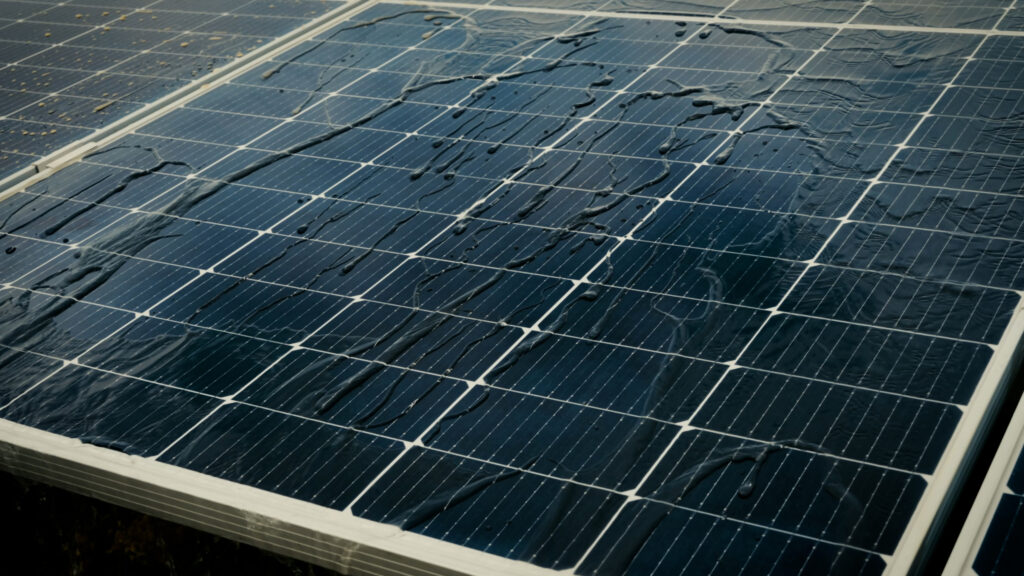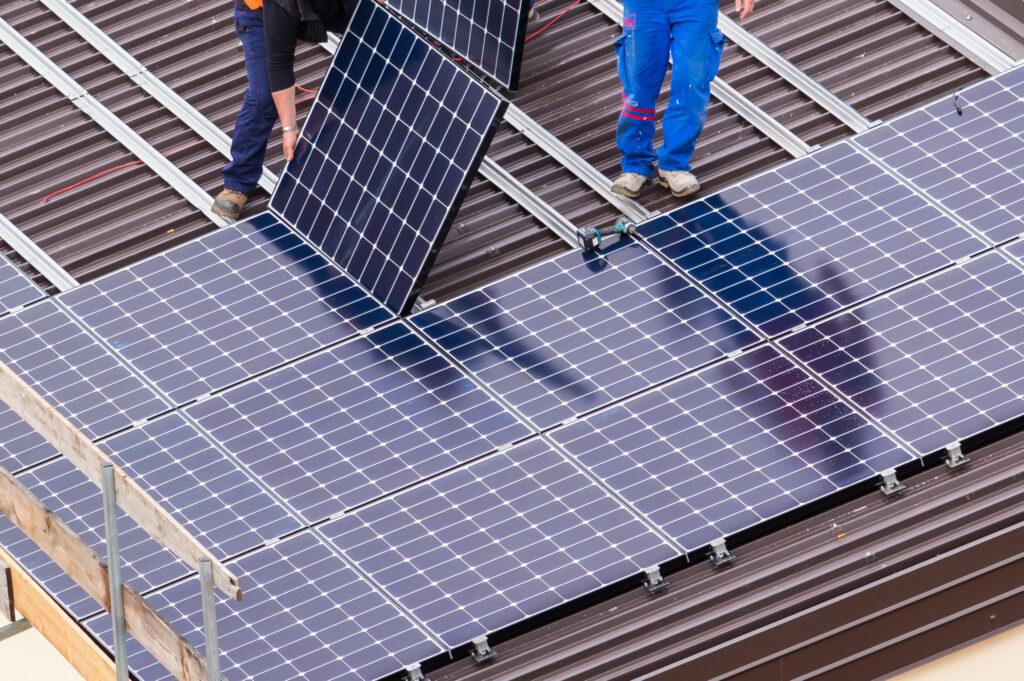Maximizing Solar Panel Performance with Nano Coatings: An Innovative Approach
As the demand for sustainable energy grows, solar panels are at the forefront, capturing the sun’s energy. However, their effectiveness relies not only on their technology, design and installation but also on their maintenance. Surface Nano Coatings present a groundbreaking solution, enhancing the efficiency and longevity of solar panels.
Before delving into how to maximize the efficiency of solar panels, let’s first review some general information about solar panel technology and highlight key points:
- Fundamentals of solar panels and the importance of clean energy
- The critical need for keeping solar panels clean for optimal performance
- Overcoming environmental challenges: protecting solar panels from UV radiation, temperature extremes, and adverse conditions
- Benefits of nano coatings: from resistance to dirt and dust to enhanced efficiency
- Practical tips: application process, durability, and maintenance of nano-coated panels
Learn how nano coatings are revolutionizing solar energy efficiency and contributing to a greener planet.
The Essentials of Solar Panels and Renewable Energy
How Solar Panels Operate
Solar panels are incredible devices that transform sunlight into electricity using photovoltaic (PV) cells, typically made from silicon. Simply, when sunlight strikes a PV cell, it knocks electrons loose from their atom, and it generates an electric field, producing electricity. This process is highly efficient, silent, and pollution-free. Solar panels can be installed on rooftops, in large solar farms, onto sea or lagoon surfaces or integrated into building materials.
The Vital Role of Solar Energy as a Renewable Resource
Transitioning to solar energy is essential for a sustainable future. Unlike finite fossil fuels, solar energy is an unlimited renewable resource to produce electricity. Its primary advantage lies in reducing greenhouse gas emissions, which is crucial in addressing climate change. Adopting solar energy reflects a commitment to a cleaner, more resilient world, mitigating the environmental impacts of traditional energy sources.
Environmental and Health Advantages of Solar Energy
Solar energy provides significant environmental benefits. Solar panels operate without emitting harmful pollutants, greatly reducing the carbon footprint and supporting global efforts to combat climate change. They also conserve water, unlike conventional power generation methods. Solar farms are designed to coexist with local ecosystems, minimizing ecological disruptions.
The health benefits of solar energy are substantial. Reduced air pollution from burning fossil fuels leads to fewer respiratory and cardiovascular health issues.
The Importance of Keeping Solar Panels Efficient
The Necessity of Clean Solar Panels
The efficiency of solar panels is closely linked to their cleanliness. Over time, panels accumulate dust, dirt, and other residues, hindering their ability to capture sunlight effectively. This buildup creates a barrier, blocking solar rays from reaching the PV cells. For individual panels, this might mean a slight efficiency drop, but on a solar farm scale, the overall impact can be substantial, leading to significant energy production losses. Considering the general efficiency of solar cells typically ranges from about 15% to 22%, increasing efficiency or preventing efficiency drops due to dirt accumulation by even 1% is quite important.
Challenges of Maintaining Large Solar Farms
Cleaning large solar farms is a major challenge. These expansive installations require regular, meticulous cleaning to ensure optimal performance. The process is time-consuming, labor-intensive, and resource-intensive. In water-scarce regions, cleaning becomes even more complex, highlighting the need for advanced solutions to reduce cleaning frequency and effort.
The Link Between Cleanliness and Efficiency
The connection between solar panel cleanliness and efficiency is undeniable. A clean panel surface allows maximum sunlight absorption, lesser reflectiveness and resulting in higher electrical output. Conversely, dirty panels suffer from reduced efficiency, as dirt layers block sunlight from reaching the PV cells. Regular cleaning is essential to maintain maximum capacity, ultimately affecting the return on investment for solar energy projects.
The Transformative Role of Nano Coatings in Solar Panel Care
Enhancing Durability and Performance
Nano coatings, such as those from NASIOL, a leading manufacturer in the market, offers a revolutionary approach to solar panel maintenance. These advanced coatings offer a robust shield against environmental wear and tear, providing unmatched scratch and abrasion protection. This durability translates into longer-lasting solar panels, ensuring your investment continues to yield returns over an extended period.
Maximizing Cleanliness for Optimal Performance
A key feature of these coatings is their easy-to-clean nature. Due to the high hydrophobic properties of surfaces coated with nano coatings, rain and wind can effectively clean the surface, reducing dirt accumulation over time on solar panels. These coatings create a water-repellent layer that causes water to bead up and roll off, taking dirt and debris with it. This self-cleaning effect helps maintain optimal light absorption and efficiency, ensuring the panels perform at their best even in less than ideal weather conditions. The reduced need for manual cleaning also lowers maintenance costs and efforts. The hydrophobic and oleophobic properties of NASIOL nano coatings prevent water and oil-based substances from sticking to the panel’s surface. This makes cleaning effortless and significantly reduces maintenance frequency. The result? Solar panels that maintain their efficiency with minimal upkeep.
Protection Against Environmental Elements
Nano coatings excel in protecting solar panels from harsh environmental conditions. They offer strong UV damage protection, shielding panels from the sun’s harsh rays. Additionally, they provide thermal protection, ensuring resilience against extreme temperature fluctuations, essential for panels exposed to varied climates.
NASIOL coatings also protect against extreme pH levels, making panels resistant to acid and alkaline substances. This is particularly beneficial in areas prone to acid rain or industrial pollutants. Moreover, the coatings provide effective deicing solutions for solar panels, crucial in colder regions where ice accumulation can significantly reduce efficiency.
Universal Compatibility and Easy Application
NASIOL’s nano coatings are designed to be universally compatible and safe for all types of solar panels, including glass, silicon and thin-film technologies. The application process is straightforward, whether integrated during production or applied post-installation. This flexibility ensures that both existing installations and new projects can benefit from this advanced technology.
Commitment to Sustainability and Environmental Responsibility
NASIOL nano coatings are REACH compliant, ensuring they meet stringent safety standards. This compliance underscores a commitment to enhancing solar panel performance in an eco-friendly manner.
Conclusion
In conclusion, nano coatings significantly boost the efficiency and longevity of solar energy systems. By enhancing the cleanliness and durability of solar panels, NASIOL nano coatings play a crucial role in optimizing solar energy production. Their hydrophobic and oleophobic properties, coupled with resistance to environmental stressors, result in less frequent cleanings, reduced maintenance costs, and prolonged panel lifespan.
Integrating nano coatings into solar installations marks a progressive step toward sustainable energy. These coatings are not just about improved energy generation; they embody a commitment to environmental responsibility. As we continue to embrace solar energy, the importance of technologies like nano coatings becomes increasingly evident. They represent more than just a protective layer; they are a bridge toward a more efficient and sustainable future in renewable energy. As we harness the power of the sun, these innovations ensure that we do so in the most effective and responsible way possible.
FAQs
- What is a solar panel nano coating? A solar panel nano coating is a specialized, ultra-thin layer applied to the surface of solar panels. It enhances the panel’s performance by providing properties such as hydrophobicity (water repelling), oleophobicity (oil repelling), UV damage protection, and resistance to environmental factors. These coatings are key in maintaining the efficiency, cleanliness, and longevity of solar panels.
- How do nano coatings benefit solar panels? Nano coatings offer numerous benefits to solar panels, including enhanced solar power generation, scratch and abrasion protection, and improved panel longevity. Their easy-to-clean nature ensures that panels maintain high efficiency by minimizing dirt and dust adherence, which can obstruct sunlight absorption. Additionally, coatings like NASIOL nano coatings offer thermal protection and resistance to extreme pH levels, contributing to the panels’ overall durability.
- Are nano coatings safe for all types of solar panels? Yes, most nano coatings are formulated to be safe and effective for various types of solar panels either glass or polymer top layer. These coatings are designed to be compatible with different panel materials, ensuring they don’t compromise the panel’s functionality or structural integrity.
- How often do nano coatings need to be reapplied? The frequency of reapplication for nano coatings on solar panels can vary depending on factors such as environmental exposure and coating quality. Generally, high-quality nano coatings, like those offered by NASIOL, can last several years before needing reapplication, making them a long-lasting solution for solar panel protection.
- Are there any special maintenance requirements for nano-coated solar panels? Nano-coated solar panels typically require less intensive maintenance due to their self-cleaning properties. While regular cleaning may still be necessary, the frequency and effort needed are significantly reduced. It’s important to follow any specific care instructions provided by the coating manufacturer to ensure the coating’s effectiveness is maintained over time.http://nasiolindustrial.com




